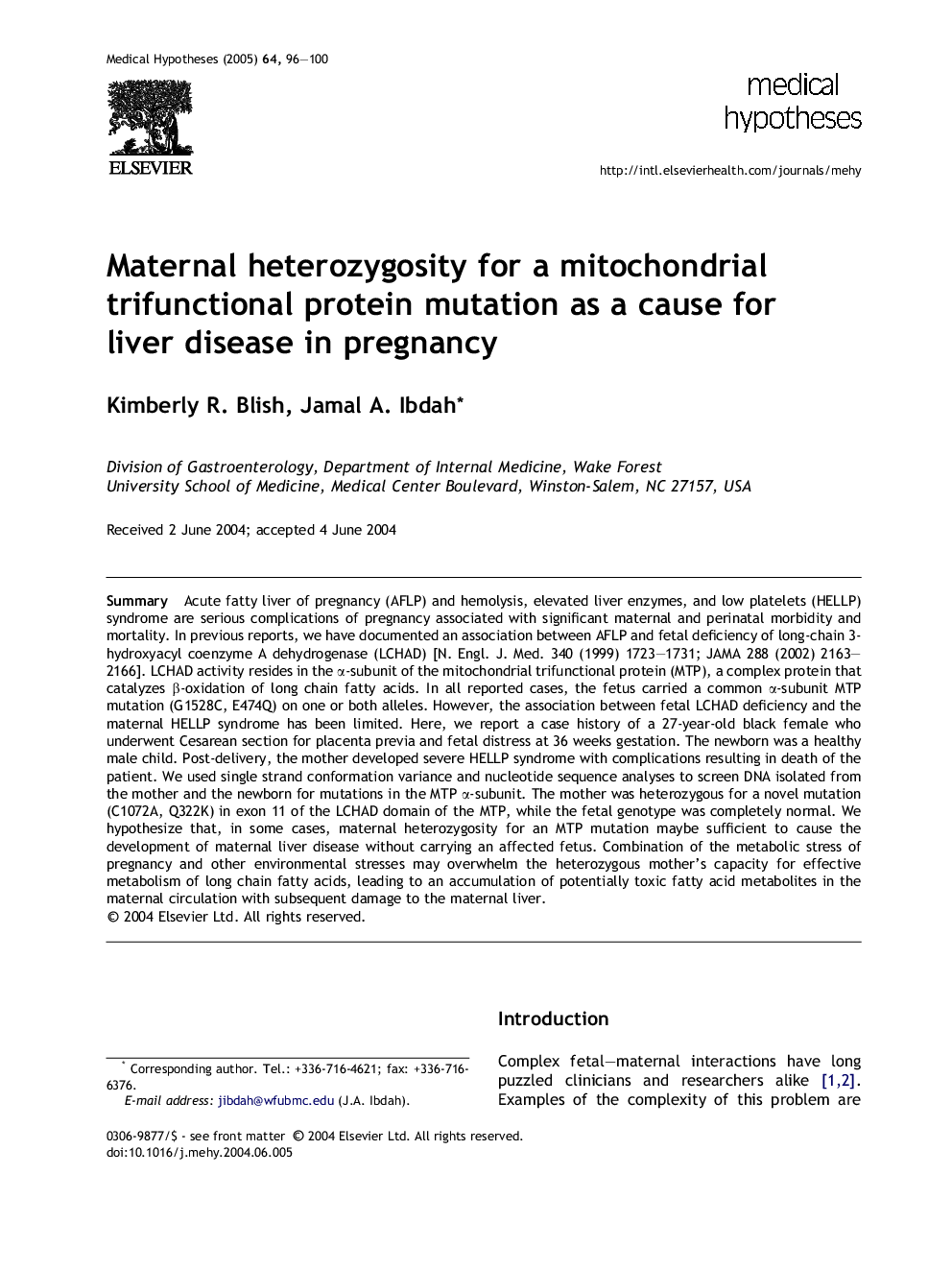| کد مقاله | کد نشریه | سال انتشار | مقاله انگلیسی | نسخه تمام متن |
|---|---|---|---|---|
| 8996896 | 1115144 | 2005 | 5 صفحه PDF | دانلود رایگان |
عنوان انگلیسی مقاله ISI
Maternal heterozygosity for a mitochondrial trifunctional protein mutation as a cause for liver disease in pregnancy
دانلود مقاله + سفارش ترجمه
دانلود مقاله ISI انگلیسی
رایگان برای ایرانیان
موضوعات مرتبط
علوم زیستی و بیوفناوری
بیوشیمی، ژنتیک و زیست شناسی مولکولی
زیست شناسی تکاملی
پیش نمایش صفحه اول مقاله

چکیده انگلیسی
Acute fatty liver of pregnancy (AFLP) and hemolysis, elevated liver enzymes, and low platelets (HELLP) syndrome are serious complications of pregnancy associated with significant maternal and perinatal morbidity and mortality. In previous reports, we have documented an association between AFLP and fetal deficiency of long-chain 3-hydroxyacyl coenzyme A dehydrogenase (LCHAD) [N. Engl. J. Med. 340 (1999) 1723-1731; JAMA 288 (2002) 2163-2166]. LCHAD activity resides in the α-subunit of the mitochondrial trifunctional protein (MTP), a complex protein that catalyzes β-oxidation of long chain fatty acids. In all reported cases, the fetus carried a common α-subunit MTP mutation (G1528C, E474Q) on one or both alleles. However, the association between fetal LCHAD deficiency and the maternal HELLP syndrome has been limited. Here, we report a case history of a 27-year-old black female who underwent Cesarean section for placenta previa and fetal distress at 36 weeks gestation. The newborn was a healthy male child. Post-delivery, the mother developed severe HELLP syndrome with complications resulting in death of the patient. We used single strand conformation variance and nucleotide sequence analyses to screen DNA isolated from the mother and the newborn for mutations in the MTP α-subunit. The mother was heterozygous for a novel mutation (C1072A, Q322K) in exon 11 of the LCHAD domain of the MTP, while the fetal genotype was completely normal. We hypothesize that, in some cases, maternal heterozygosity for an MTP mutation maybe sufficient to cause the development of maternal liver disease without carrying an affected fetus. Combination of the metabolic stress of pregnancy and other environmental stresses may overwhelm the heterozygous mother's capacity for effective metabolism of long chain fatty acids, leading to an accumulation of potentially toxic fatty acid metabolites in the maternal circulation with subsequent damage to the maternal liver.
ناشر
Database: Elsevier - ScienceDirect (ساینس دایرکت)
Journal: Medical Hypotheses - Volume 64, Issue 1, 2005, Pages 96-100
Journal: Medical Hypotheses - Volume 64, Issue 1, 2005, Pages 96-100
نویسندگان
Kimberly R. Blish, Jamal A. Ibdah,